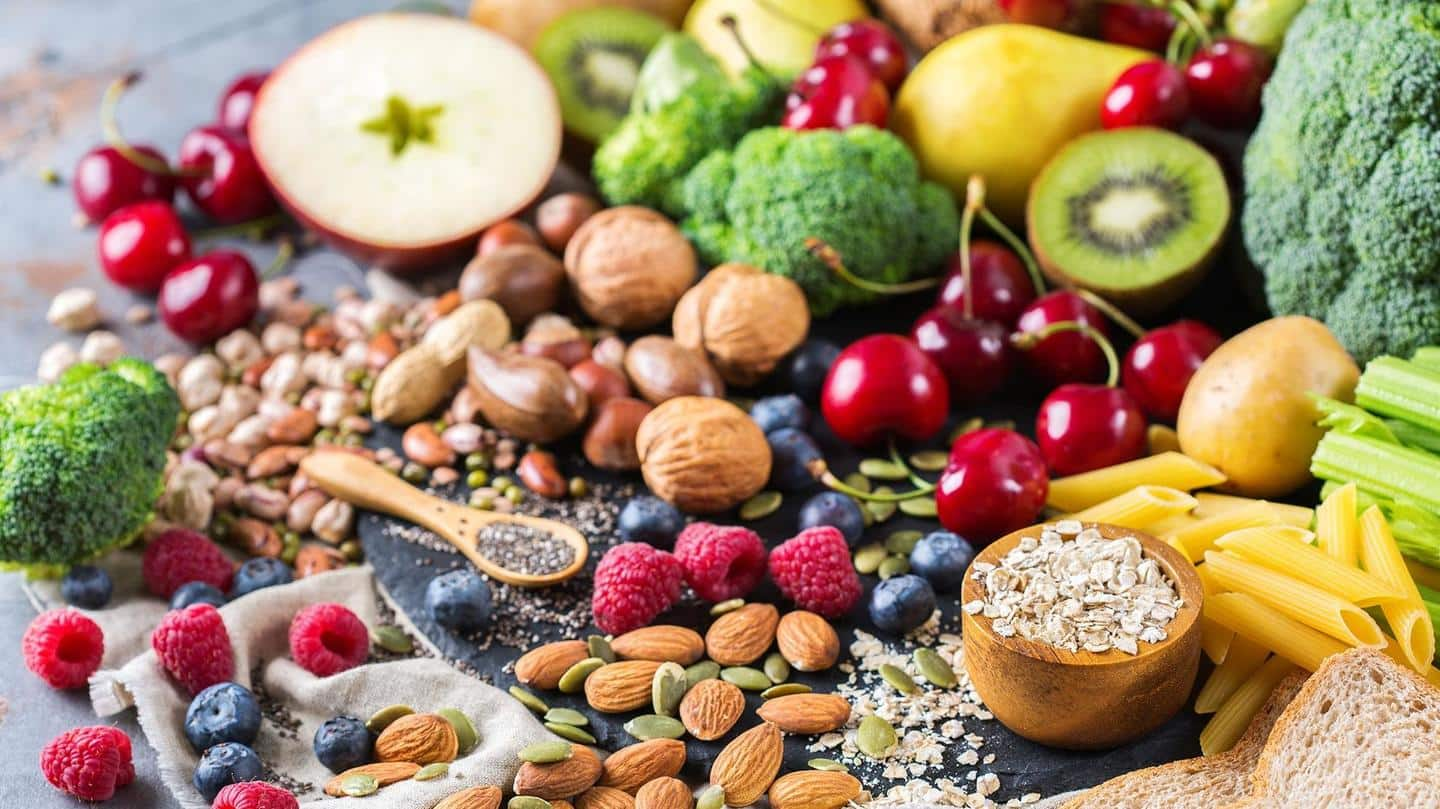#HealthBytes: Six important vitamins that are crucial for your health
What's the story
The terms vitamins and minerals are thrown around so frequently that we often aren't clear regarding which nutrient best addresses our specific concern.
Vitamins are best when they come from whole foods, but the unavailability of certain foods in our region may require us to reach out for dietary supplements.
Here are some essential vitamins and their sources that are required for healthy living.
Vitamin A
Vitamin A contributes towards healthy vision, teeth, and skin
Vitamin A is essential for overall growth in the body and contributes towards a healthy vision, teeth, and skin.
Vitamin A is found in carrots, sweet potatoes, cantaloupe melons, and also in animal products such as chicken, fish, and meat.
The daily recommended dosage of vitamin A is 900 mcg for men, 700 mcg for women, and 300-600 mcg in children.
Vitamin B
Vitamin B boosts immune function and helps in iron absorption
There are eight B vitamins and they are collectively called B-complex vitamins. They are crucial for energy production, immune function, and iron absorption.
These vitamins are found in a wide range of foods ranging from unprocessed foods, lentils, dairy, and vegetables such as potatoes and beans.
You can also take B-complex supplements, which usually contain all eight B vitamins packed into a single pill.
Vitamin C
Vitamin C is rich in anti-oxidants and strengthens blood vessels
Vitamin C plays a vital role in boosting our immunity and protects us against cardiovascular diseases, eye diseases, and strengthens our blood vessels.
A healthy intake of vitamin C is of paramount importance to the skin as it is rich in antioxidants and helps in maintaining supple skin.
In addition to citrus fruits, this super vitamin is also found in guava, kiwi, and strawberries.
Vitamin D
Vitamin D is super important for healthy bones
The vitamin D family is composed of vitamins D-1, D-2, and D-3 and is important for strong bones and in maintaining colon health. Studies prove that vitamin D also plays an important role in warding off depression.
This sunshine vitamin is synthesized by our body on exposure to the sun and is present in certain foods such as egg yolks and fatty fish.
Vitamin E
Vitamin E protects cells from damage caused by free radicals
Free radicals are produced in the body as a result of the various bodily process and they are capable of shortening the life of cells.
Vitamin E helps reduce free radical damage and slows the aging of the cells.
Nuts and seeds are a rich source of vitamin E and munching on almonds, peanuts, and sunflower seeds will help maintain your vitamin E levels.
Vitamin K
Vitamin K plays a role in blood coagulation
Vitamin K produces prothrombin that is necessary for blood clotting and bone metabolism in the body. It also helps lower blood pressure and enables the heart to efficiently pump blood.
Leafy greens such as kale, spinach, and brussels sprouts are a rich source of vitamin K1 while the lesser-known vitamin K2 is found in egg yolks, liver, and fermented foods.
